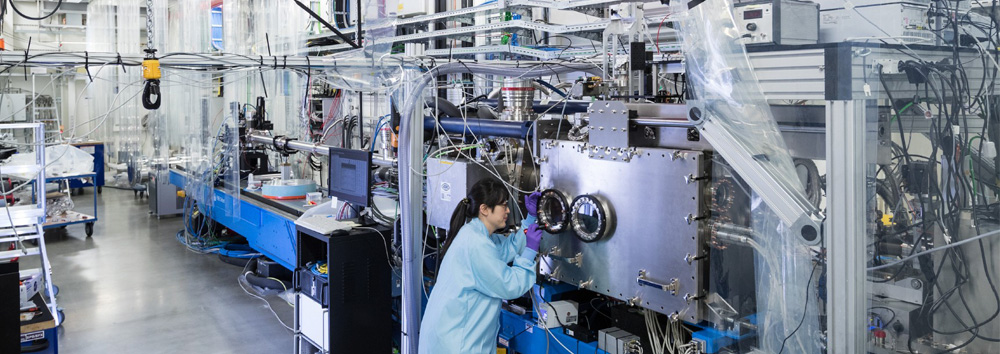Scientists have long dreamed of being able to film the details of chemical and biological reactions by taking, and stitching together snapshots of these processes. Getting the timing of the individual shots of the movies just right is dependent on a number of factors including understanding the timing variation, or so-called ‘jitter’, of the laser beams used to take the images. In an experiment published now in the journal Optics Letters, scientists describe how they measured the jitter at the SPB/SFX instrument at European XFEL and demonstrate how this unavoidable and undesirable effect might be overcome. The knowledge gained from these movies could lead to new technological innovations and developments.
Biological and chemical reactions happen extremely quickly and filming them requires an extremely fast and precise camera. Much like a fast exposure time can be used to capture a series of images showing details of the movements a sprinter makes during a race, so the extremely short bursts of X-rays produced by facilities such as European XFEL are short and frequent enough to capture the sequence of molecular movements that happen during a reaction. To make a molecular movie, scientists can, for example, first kick-start the reaction they want to film by hitting their sample of choice with a laser. Then, the intense X-ray laser is used to take a sequence of images of the molecular process as it unfolds. Getting the timing of the two lasers just right is crucial for the success of these types of experiments, however, at these speeds, it is not trivial.
About European XFEL
The European XFEL is a 3.4 km long research facility extending from Hamburg to the neighbouring town of Schenefeld in the German Federal State of Schleswig-Holstein. With its repetition rate of 27,000 pulses per second and a peak brilliance a billion times higher than that of the best synchrotron X-ray radiation sources, the European XFEL enables the investigation of scientific problems in a variety of disciplines, including among many others: Structural Biology, Chemistry, Planetary Science, the study of matter under extreme conditions.



